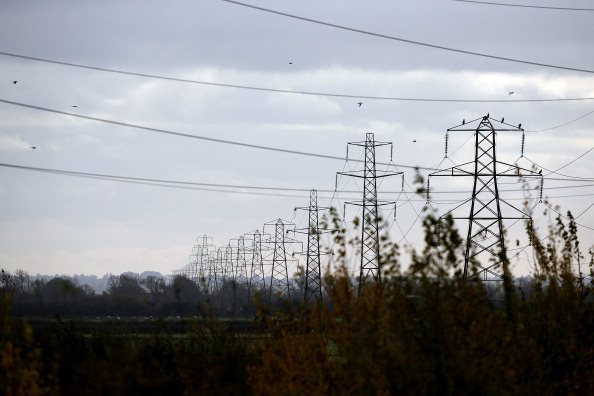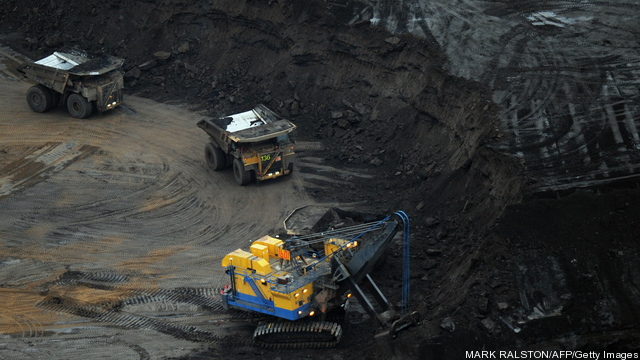On February 23, 2015, the Department of Energy (DOE) released a long-awaited final rule overhauling its Part 810 Regulations (10 C.F.R. Part 810) governing the export of certain nuclear technology and assistance.
Land Use
DOE Overhauls Export Controls for Nuclear Technology
By Christian C. Davis, Thomas McCarthy, Tatman R. Savio, Wynn Segall, Kelly Stephenson | Akin Gump Strauss Hauer & Feld LLPSign up and get Breaking Energy news in your inbox.
We will never sell or share your information without your consent. See our privacy policy.Developer Applies To VT for Clean Power Link Transmission Line
By Todd Griset | PretiFlahertyA proposed electric transmission line from Quebec into New England took a step forward this week, as the developer of the New England Clean Power Link applied to Vermont regulators for key project approvals.
Transmission Developers Inc. subsidiary TDI New England has proposed the New England Clean Power Link to bring Canadian hydropower and other electricity to the renewable-hungry New England market. With an estimated project cost of $1.2 billion, the 1000-megawatt high-voltage direct-current transmission line would run under Lake Champlain and underground to a converter station in Ludlow, Vermont, near where it would connect to the existing electric grid owned by Vermont Electric Power Company (VELCO).
Local and National Environmental Groups Seek to Intervene in Denton Fracking Case
By Justin Scott | BakerHostetlerOn Thursday, December 4, 2014, in Texas Oil and Gas Assoc. v. City of Denton, Cause No. 14-08933-431, 431st District Court, Denton County, Texas, the Denton Drilling Awareness Group and Earthworks filed a Joint Petition in Intervention seeking to “provide a vigorous defense of the legality and enforceability” of the December 2, 2014, ordinance (the “Ordinance”) which banned hydraulic fracturing in Denton. The suit was originally filed on November 5, 2014, by the Texas Oil & Gas Association, a day after Denton voters passed the Ordinance by a 59-41 percent margin.
Denton Becomes First Texas City to Ban Hydraulic Fracturing
By Adam Garmezy | Akin Gump Strauss Hauer & Feld LLPOn Tuesday, November 4, 2014, 59 percent of voters elected to ban the practice of hydraulic fracturing (“fracing”) in the city of Denton, which sits on top of the hydrocarbon-rich Barnett Shale. Although the ban does not prevent conventional drilling operations, the ban essentially forbids fracing, effectively expelling the drilling industry from city limits. Other municipalities sitting on top of the Barnett Shale—such as Fort Worth, Dallas and Arlington—have grappled with urban drilling as well, but Denton’s complete prohibition marks the first of its kind in Texas.
Ohio Elections Yield Mixed Results on Local Hydraulic Fracturing Bans
By Andrew Doggett | BakerHostetlerNumerous Parties Line Up in Support of Petition in Delta Smelt Case
By Paul Weiland | Nossaman LLPAs we reported here, on October 6, 2014, a number of public water agencies and other entities that represent agricultural and municipal water users in California filed a petition for writ of certiorari with the U.S. Supreme Court. The petition was filed after a divided panel of the United States Court of Appeals for the Ninth Circuit issued a decision affirming a biological opinion issued by the U.S. Fish and Wildlife Service with respect to continuing operations of the federal Central Valley Project and State Water Project. The panel held that the biological opinion and accompanying reasonable and prudent alternative do not violate the Administrative Procedure Act and Endangered Species Act. The deadline to file amicus briefs in support of the petition was November 6, 2014.
EPA Draft Ruling Could Mean Significant Changes to How Stormwater Systems are Categorized
By Shawn Hagerty, Andre Monette | Best Best & Krieger LLPThe last thing that public agency leaders want to hear is that looming changes may make operating and building new public infrastructure more challenging and expensive. Unfortunately, proposed changes by the Environmental Protection Agency to the Clean Water Act could ultimately stop, delay or increase the cost of public projects.
The federal Clean Water Act establishes the basic structure for regulating discharges of pollutants into the waters of the United States and regulating the quality of those waters. The pending changes, if adopted, could greatly expand the jurisdictional reach of the CWA and change how municipal stormwater systems are categorized.
The Northern Plan will focus on the integrated and coherent development of the area covered by the Northern Plan which includes all of Québec located north of the 49th degree of north latitude and north of the St. Lawrence River and the Gulf of St. Lawrence. There are several mining exploration projects and major mining projects at various stages of development in the north, some of which require significant access to infrastructures. The Government of Quebec intends to take steps to facilitate the implementation of mining and other projects in the area. With confirmation by the Government of Québec of its intention to relaunch the Northern Plan by introducing Bill 11, An Act respecting the Société du Plan Nord, on September 30, 2014, the implementation of the Northern Plan continues. Bill 11 reiterates the majority of the elements included in the former Bill 27, An Act respecting the Société du Plan Nord, introduced in 2011, which was examined by a parliamentary committee. However, Bill 11 contains new elements and incorporates differences when compared to the previous version as outlined in “Relaunching the Northern Plan: Introduction of the Bill to establish the Société du Plan Nord” [Link]. Mr. Couillard’s government seems determined to proceed with the implementation of all mechanisms required for the orderly deployment of the Northern Plan while the mining sector and international business community continue to demonstrate interest in this major plan.
Greece Initiates Offshore Oil and Gas Tender Process
By Joanne Mantis | King, Krebs & Jurgens, PLLCGreece has initiated its tender process for offshore oil and gas (hydrocarbons) exploration as of August 26, 2014. The Greek Ministry of Environment, Energy and Climate Change is seeking bid applications for its offshore oil and gas exploration in 20 block areas in the Ionian Sea and south of Crete. The Greek government is hoping this will aid the Greek economy by encouraging an influx of investment capital.
Feds Approve Quebec-to-NY Power Line
By Todd Griset | PretiFlahertyA proposed electric transmission line connecting Quebec to New York will receive a key federal approval, according to the U.S. Department of Energy. The Energy Department’s decision to issue a Presidential permit to Champlain Hudson Power Express, Inc. focuses attention on the nation’s international trade in electricity, and may suggest increased reliance on power imports.
Pursuant to two Executive Orders — EO 10485 (September 9, 1953), as amended by EO 12038 (February 7, 1978) — no electricity transmission facilities may be constructed, operated, maintained, or connected at the U.S. border without first obtaining a Presidential permit from the Department of Energy. In 2010, Champlain Hudson Power Express, Inc. applied to DOE for a Presidential permit to construct, operate, maintain, and connect a 1,000-megawatt (MW), high-voltage direct current (HVDC) merchant electric power transmission system across the U.S./Canada border.










